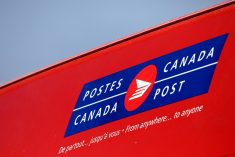Farmers have been forced to file tax returns on underused housing despite knowing they’ll be exempt from paying, says KAP.
“The additional administrative and financial burden that is being placed on farmers does not seem like it is in the best interest of farmers or the government given the redundancy of this return for the many farmers,” said a spokesperson for Keystone Agricultural Producers in an emailed statement.
Why it matters: Farmers were warned earlier this year that they might have to file a UHT return, even if they don’t owe.
Read Also

AAFC organic research program cut
Canada’s organic sector says the loss of a federal organic research program at Swift Current, Sask., will set the industry back.
In August, several national producer groups sent a letter to the federal ministers of national revenue, finance and agriculture, asking them to give farmers a permanent exemption from the underused housing tax (UHT). Lobbying efforts are ongoing.
The UHT took effect at the beginning of 2022. It’s generally targeted at non-resident, non-Canadian owners of vacant or underused housing, according to the federal government’s website. While almost every Canadian is exempt, farmers may be subject to the tax if the farm is incorporated.
The UHT was “put in place to help alleviate pressure on the domestic housing sector,” the producer groups say in the letter. However, it is “having an unintended and negative impact on farmers.”
Farms might own additional housing to accommodate seasonal workers or because they bought and consolidated farms that include houses.
The UHT requires that “various Canadian companies, partnerships, and trusts, regardless of foreign ownership, submit a return for every residential property they hold,” the letter says. “This requirement applies yearly, even if no taxes need to be paid.”
The biggest concern KAP cites is the administrative burden. Farmers may have to pay a professional to prepare the UHT return. While there is an exemption process available, “the application process itself is costly,” KAP said.
“Furthermore, farmers are required to keep documents supporting their exemption status for six years after they file a return. If adequate records are not kept, the CRA could reject an exemption,” KAP added.
If farmers don’t file the UHT return, they may be fined a minimum of $5,000 for individual owners or $10,000 for corporations, the government’s website states.
“Those are significant penalties,” said Keith Currie, president of the Canadian Federation of Agriculture, which signed the letter. “In some cases, it just might be a lack of knowing that you have to file.”
The deadline to file was April 30 but the CRA said it would waive penalties and interest if the UHT return is filed and fees paid by Oct. 31.
Producer groups have been in communication with the minister of finance, Chrystia Freeland, and Agriculture and Agri-Food Minister Lawrence MacAulay, said Dave Carey, vice-president of government and industry relations for the Canadian Canola Growers Association.
They’ve also raised the issue with John Barlow, the opposition’s shadow critic for agriculture.
They hope to have farmers exempted by next tax season, Carey said.
“This is all predicated on real housing issues that are facing metropolitan centres … However, farmers were unfortunately caught up in this,” he said. “The federal government has been clear it was never their intention to, you know, penalize farmers in this way.”
“As Budget 2021 makes clear, the Underused Housing Tax (UHT) was designed to help ensure that foreign, non-resident owners of underused Canadian housing pay their fair share of Canadian tax,” a federal department of finance official said in an emailed statement.
“Its purpose is not to penalize Canadian farmers who feed Canadians and grow Canada’s economy. As such, the majority of units owned by Canadian farmers either fall outside the scope of the tax or are eligible for an exemption from the tax.
“The Government of Canada is continuously reviewing ways it can better ensure the fairness of the Canadian tax system.”
















